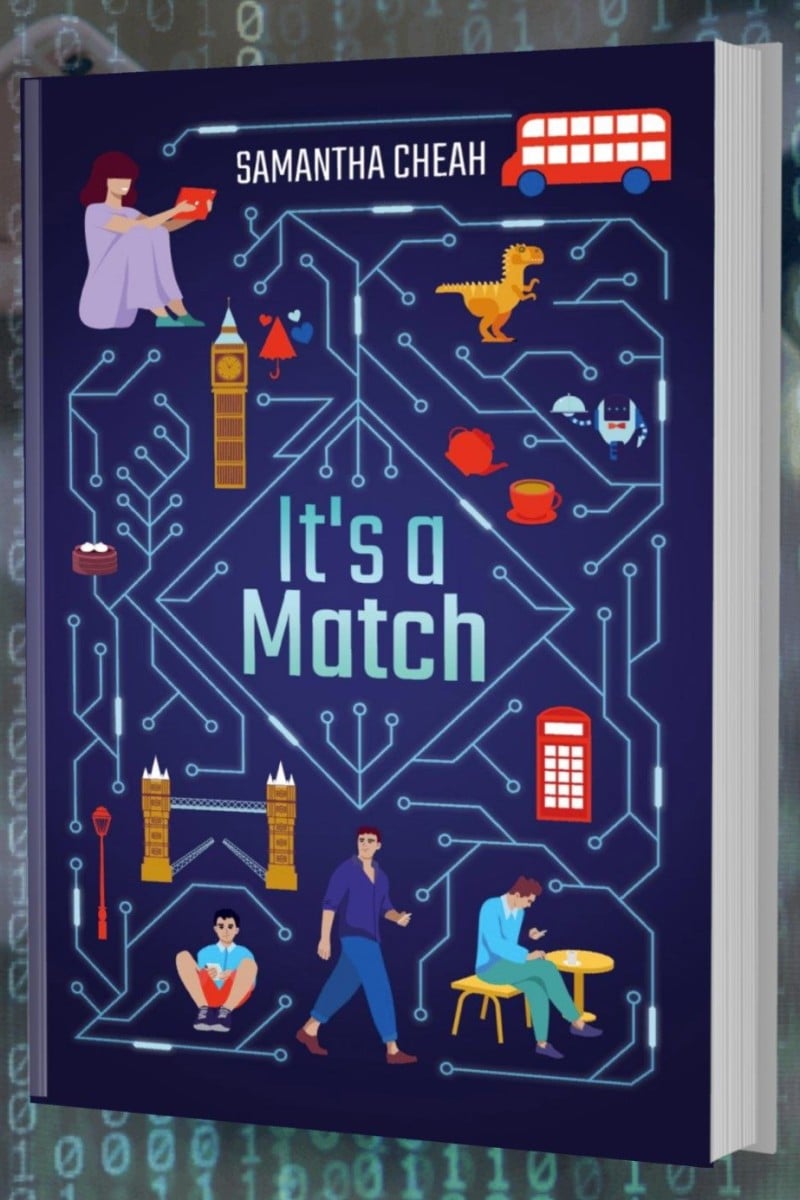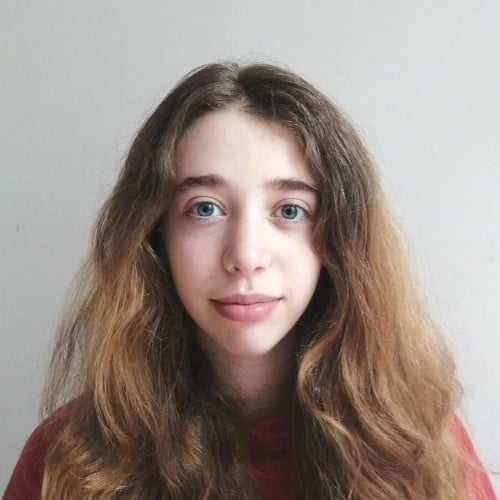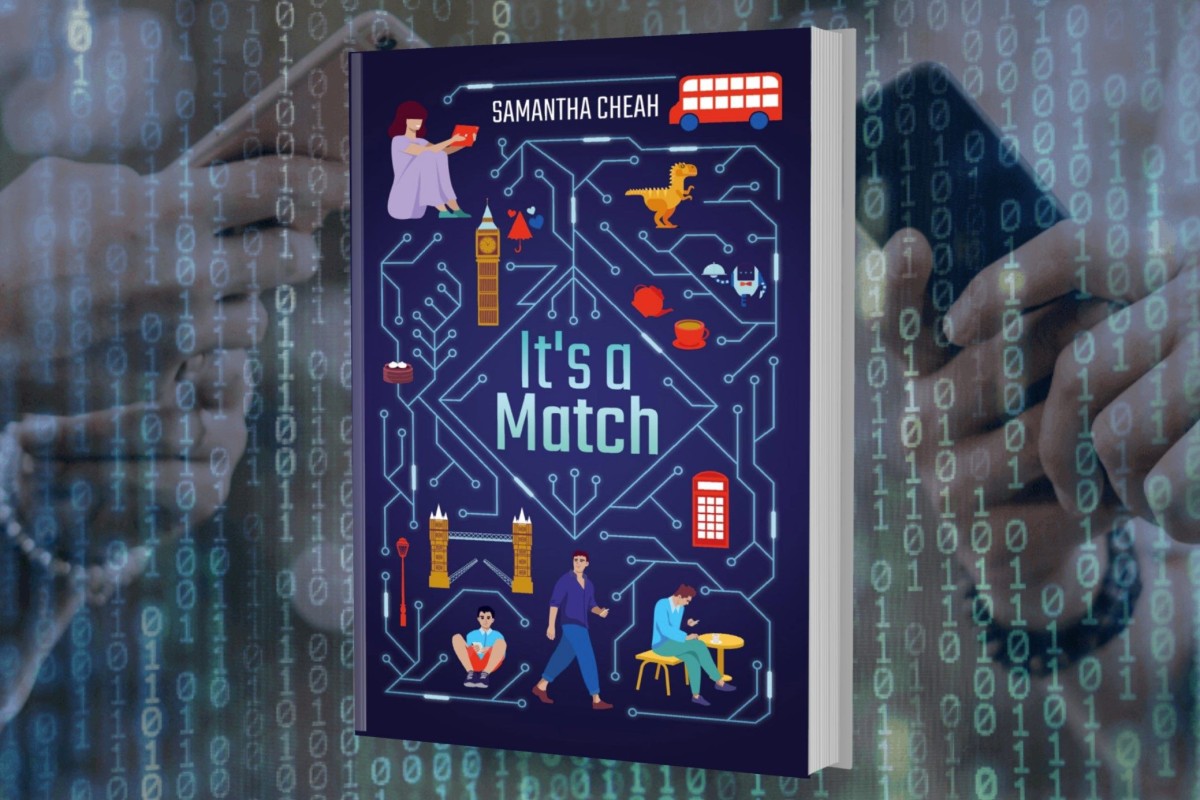
Is AI the ultimate matchmaker? Young adult sci-fi book ‘It’s a Match’ explores how tech could change how we date
- Hong Kong-British author Samantha Cheah narrates the bizarre dating experiences of a university student in London in the 2030s
- While the resolution feels a tad rushed, the novel portrays well-developed characters and investigates a timely theme about free will and technology

 Samantha Cheah’s young adult novel, It’s a Match, explores the impact of artificial intelligence on dating. Photo: Captured online
Samantha Cheah’s young adult novel, It’s a Match, explores the impact of artificial intelligence on dating. Photo: Captured onlineFrom apps like Bumble and Hinge to virtual Zoom dates during Covid-19, dating has changed a lot in the past 10 years. But imagine what it will be like in another 10 – what emerging technology today might shimmy its way into our love lives? NFT bouquets? Marriage certificates on the blockchain?
Samantha Cheah’s young adult novel, It’s a Match, guesses at what dating in the 2030s might be like by combining the age-old tradition of arranged marriage with a non-human matchmaker, artificial intelligence (AI). Set in London, the sci-fi book narrates the bizarre dating experience of Sarah, a university student from Hong Kong.
A polite and introverted girl, Sarah has never treated dating as a priority until her best friend, Jen, starts ditching her for her new boyfriend, Nate. Wesley and Anaïs, Sarah’s classmates and friends, are also constantly flirting with each other.
Review of Katie Zhao’s ‘How We Fall Apart’: relatable but heavily dramatised
As a result, Sarah feels lonely and starts weighing her options. After a series of awful dates – some virtual, some in real life – she decides to ask Delphi, her artificial intelligence virtual assistant (AIVA) to use her preferences to match her with a date. But things don’t go as planned, and Sarah has to face some hard truths about how much she wants technology to control her life.
One of the central topics in the book is whether it is possible to have free will, the ability to make your own choices and mistakes, even when a more powerful entity has quite a bit of influence. In romance fiction, free will is often contentious as authors constantly undermine characters’ choices, creating predictable and sometimes unhealthy tropes.
In this novel, main characters rely on AI but ultimately must choose for themselves. This presents protagonists with decisions they can make about love and life – and reminds readers they can make these choices too.
The storytelling feels like you’re reading a sitcom with brilliant characters who are three-dimensional. Sarah’s experiences are inspired by the author’s forays into online dating, making the story funny and original.
Sarah grows beyond being just “the perfect one”, and even other characters like Wesley, “the funny one” who resembles Jake Peralta from popular sitcom Brooklyn 99, get more depth as the plot progresses. Near the end, we see different characters’ perspectives, which show how they have matured and the reasons for their actions. Plus, the author took it upon herself to portray the diversity of London, as most of the main characters are people of colour.
In the Author’s Note, Cheah explains that, while she is not an expert in AI, she believes the technology in this novel has the potential to exist. Futuristic items are used in routine settings, such as virtual reality glasses, self-driving cars or holograms.
There are also contemporary references that make the book seem like it is set in a very possible future of our world – for instance, mentions of the Covid-19 pandemic or Brooklyn 99.
Nevertheless, it is not a perfect book. Within its tight 280 pages, the first part about Sarah’s dates drags on, while the plot twist comes late and feels rushed. The novel’s main problem – and most shocking moment – is solved too quickly.
While It’s a Match is not a masterpiece, it is a fast read that is both hilarious and innovative. The novel is also timely in how it deals with our morals and ethics regarding technology.
Particularly, as Cheah puts it, if you “are the kind of person to find it both creepy and fascinating when an ad of something you talk about on your phone pops up on your laptop”, this book is for you.
It’s a Match was released on February 14.
